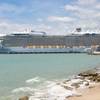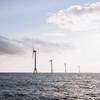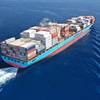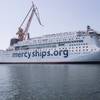Castrol Offshore said its GreenField lubricants is likely to remain the only products fully tested to environmentally-responsible standards set by Norwegian authorities through 2011. Changes to Norwegian Activities Regulations introduced on January 1st 2010 require discharged lubricants and chemicals, used in closed systems in amounts of more than 3000kg a year per facility, to be registered for use offshore.
Applications including crane hydraulics, thrusters, drilling system hydraulics and mooring winch gears, require Harmonised Offshore Chemicals Notification Format (HOCNF) registered products. Castrol Offshore proactively registered its products before the January 1st 2010 deadline. Castrol Offshore’s environmental specialist, Susannah Linington, explained, “We believe we remain in the unique position of being able to offer products fully tested and registered with the Norwegian authorities.”
Topside hydraulic fluid Castrol BioBar and thruster-specific Castrol BioStat have both been tested and registered according to the OSPAR (the Oslo and Paris Conventions for the protection of the marine environment of the North-East Atlantic) requirements on the Norwegian
NEMS database. The range is completed by Castrol Anvol CF22, formulated for BOP control systems, Castrol BioTac for jacking legs and deck machinery and Castrol BioTrans for gear boxes.
All of these products are easy to retrofit according to Linington. “These products give operators the opportunity to select environmentally responsible alternatives without compromising on technical performance in comparison with conventional mineral oil products.”
UK legislators recently arrived at a new definition of offshore “releases,” to provide the basis for enforcement against operators for unintentional chemical releases. Permit holders now have an obligation to prevent damaging incidents or to limit their environmental consequences. Linington says the use of Castrol GreenField products would also allow operators to meet obligations under these new rules.
Again, the Canadian government recently started asking offshore permit holders for information on the environmental specifications of thruster fluids. Currently, shipboard lubricants do not have to undergo the same rigorous environmental testing as those used offshore. However, for example, the final draft of the European Ecolabel for lubricants extends to lubricants in marine applications. Meanwhile, in the US, the US Environmental Protection Agency (EPA) is reviewing criteria in the Vessel General Permit for the selection of environmentally preferable lubricants for use in stern tubes and thrusters.
Similar guidelines have been provided by the International Maritime Organization for ships operating in Polar waters, which state: “Sterntube bearings, seals and main propulsion components located outside the hull should not leak pollutants. Non-toxic, biodegradable
lubricants are not considered to be pollutants.”
Given these trends, Linington said, “The shipping industry also needs to review applications that have the potential to discharge lubricants into the sea, either intentionally or by accident, as a matter of urgency. It is imperative that owners assess whether they could use products in these applications that have a reduced impact on the marine environment, based on biodegradation, bioaccumulation and toxicity whilst maintaining good lubrication performance.”










